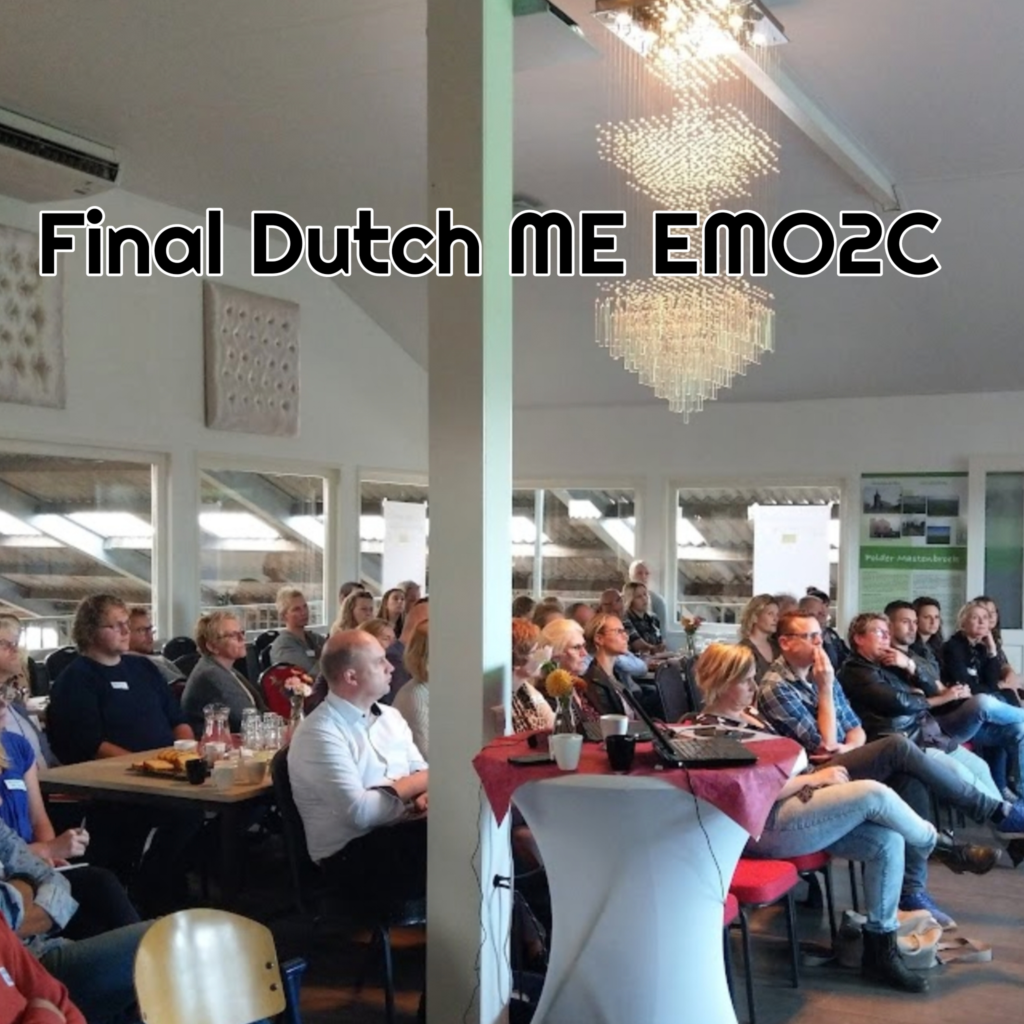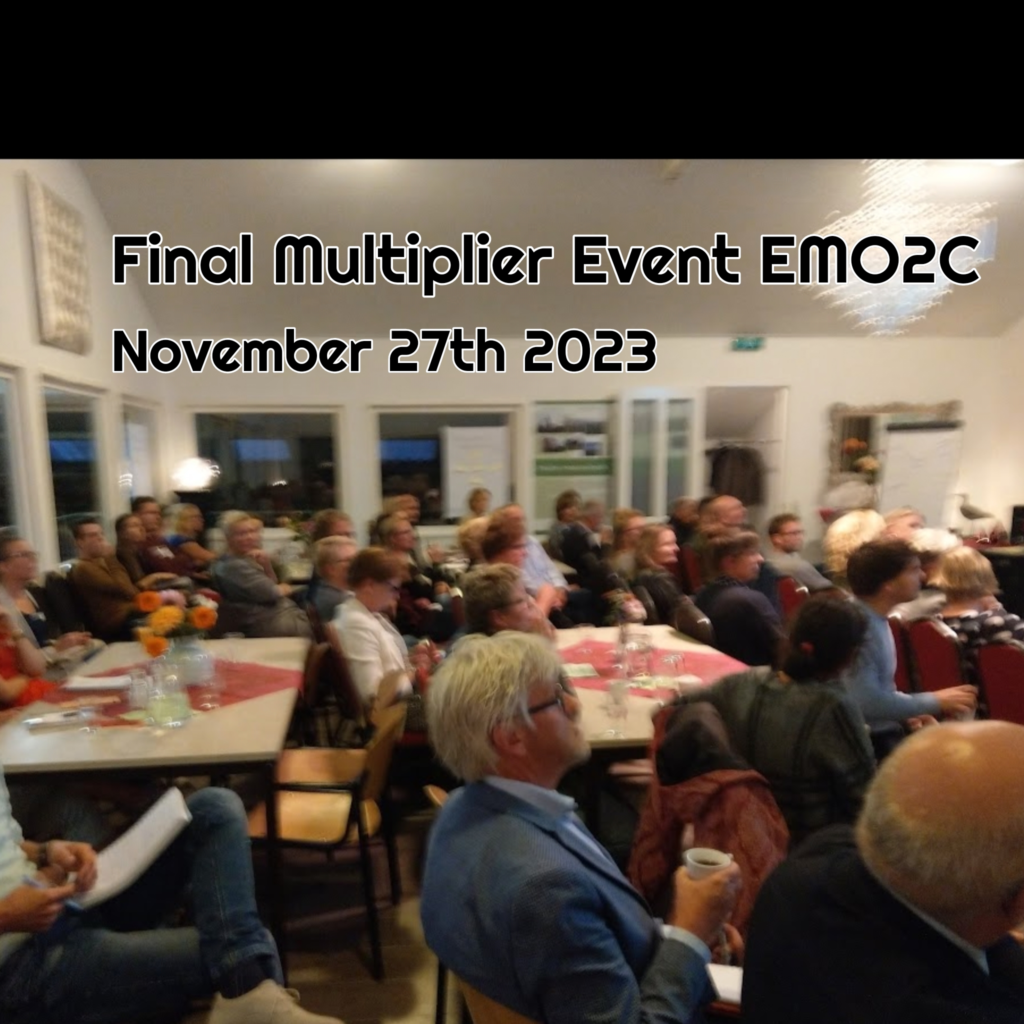Amazing Final Dutch EMO2C Multiplier Event

Monday 27 November the Dutch Foundation of Innovation Welfare 2 Work (DFW2W) organised the Final Dutch EMO2C multiplier event on the University Leiden Campus. During the event in Leiden the EMO2C partnership presented their results and intellectual outputs to the Dutch audience.

Dutch EMO2C Event in Leiden
The EMO2C-partnership organised their Dutch transnational project meeting in Leiden, Holland. The partnership is formed by partners from different EU-countries. INDEPCIE from Spain (coordinator), AKMI from Greece, Efektas Group from Lithuania, VAEV from Austria, Igor Vitale International from Italy and DFW2W from the Netherlands.
EMO2C Objectives
The objective of EMO2C is to strengthen the emotional and social competences of the target groups, so that their personal empowerment serves as a basis for the development of technical and professional skills.
Outline Dutch EMO2C Event
Thirty delegates, mostly network professionals from VET and Second Chance Schools, but also from the university, attended final multiplier event and they brought a lot of energy and chemistry in Leiden. All the participants were pretty engaged and involved on the importance of soft skills in an educational context. We received very positive feedback. Lots of young people were really happy about the results (such as the workshop EMO2C toolkit and the presentation of the EMO2C modules) and how to facilitate the tailored learning process for individuals . Pieter van Schie was the host of the day and introduced Carla de Vreij, chairwoman DFW2W. She outlined the role of DFW2W and the EMO2C programme:,,The EMO2C project had lead to stronger relationships with colleagues, our network professionals and our young people”
Pieter lead the workshop on the EMO2C toolkit and explained the advantages of social-emotional intelligence in Second Chance Schools. We received a lot of good positive feedback on the workshop, which was applied by blended-learning approach (a face to face presentation with activities that included reading, listening but also practise by doing). In this way it was much more easy to increase the engagement of the attendees. Pieter emphasized the specific goals of the project:

- To give visibility to the purpose and work of the EMO2C project for public and private entities;
- Addressing the importance of soft skills in the target group
- Concrete and effective solutions to the problems of early school leaving and youth unemployment
- Incorporating specific measures to ensure access for young people at risk or in a situation of social exclusion
- Enabling the development of the EMO2C model and its economic sustainability in the EU
- Obtaining European recognition of the EMO2C model as an essential element in the fight against early school leaving and youth unemployment
- To promote international cooperation in this field
- Enable young people with lack of skills or qualifications to successfully gain access to education programmes or to the labour market
- Strengthen the competences and qualifications of EMO2C educators
